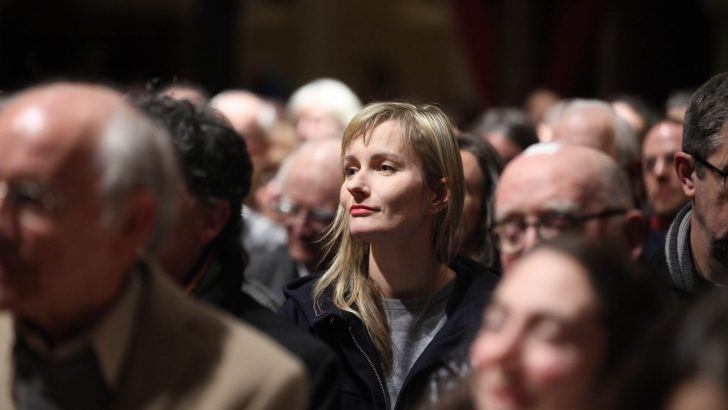It is not now an infrequent occurrence to meet someone who will observe of contemporary Ireland that “it’s not the country I grew up in”. Some will go further and say “it doesn’t feel like home anymore”. At a basic level, the world and society are always changing. Heraclitus, a Greek philosopher born in 544BC observed that “no man ever steps in the same river twice, for it’s not the same river and he’s not the same man”.
The change that Ireland has undergone in recent decades has been dizzying. A process of secularisation that took centuries to emerge in other Western cultures has gripped and engulfed Ireland in a matter of decades. Old certainties feel like a house of cards and many people – particularly conscientious Catholics – have been left reeling and bewildered.
Hostile
Rod Dreher is an American journalist who was in Dublin this week to speak about his book The Benedict Option. In the book, Mr Dreher asserts that Christians faced with a culture that is either indifferent or hostile to faith, need to eke out an existence that is based on being part of a community of believers intentional about their decision to follow Christ.
Passive Christianity will no longer do, he insists, in a world where belief in God is no longer axiomatic. However, he believes that understanding that this culture is no longer the common set of values which once underpinned a country like Ireland is a blessing. “It is better to deal with the world as it is, than to stagger on in a narcotic fog of cultural Christianity.
“It is better to deal with the world as it truly is, rather than live by comforting lies,” he told an audience of some 350 people in Dublin’s Newman University Church on Monday night.
“For those with eyes to see, the battle lines are much clearer now, and the insufficiency of half-measures impossible to deny,” he insisted.
Mr Dreher is not optimistic about the future, but he is hopeful. Are his assumptions correct and his prescription for the future worthwhile? Those present at the Dublin event co-hosted by the Notre Dame Newman Centre for Faith and Culture and The Iona Institute certainly thought so.
Catholicism in Ireland stands at a crossroads today. It has faced many such crossroads in the past and thrived through adversity not by taking the easy road, but by embracing the road less travelled. Christ promised his followers the Cross, not because he is a sadistic God, but because he knew that living according to Gospel values will inevitably bring suffering in a world that eschews such values. Time and again, we resist the Cross. But, the paradox is that the longer we resist it, the harder it becomes to carry.
It’s hard to feel optimistic about the future of Faith in Ireland. In many ways our country has embarked on a road different to that which sustained our ancestors in times past. The German philosopher Josef Pieper wrote that prudence rests in understanding that fortitude is sometimes a call to endure and witness. For many religious believers, we look on helplessly as we feel our nation is taking a wrong turn. But, a Christianity that is all about condemnation and rejection will not attract people. What will attract is truth, beauty and goodness. These are virtues that can be formed in Christian communities. When we believers live lives that are calibrated by the Gospel, we will be able to pick up the pieces when people tire of the fog of confusion that is at the heart of a large part of contemporary Western culture. Then, and only then, like St Benedict we can take up our task of rebuilding Christian culture out of the ashes.
It’s an audacious programme.
Michael Kelly is co-author of a new book with Austen Ivereigh How to Defend the Faith – Without Raising Your Voice – it is available from Columba Books.


 Michael Kelly
Michael Kelly Photo: John Mc Elroy
Photo: John Mc Elroy 